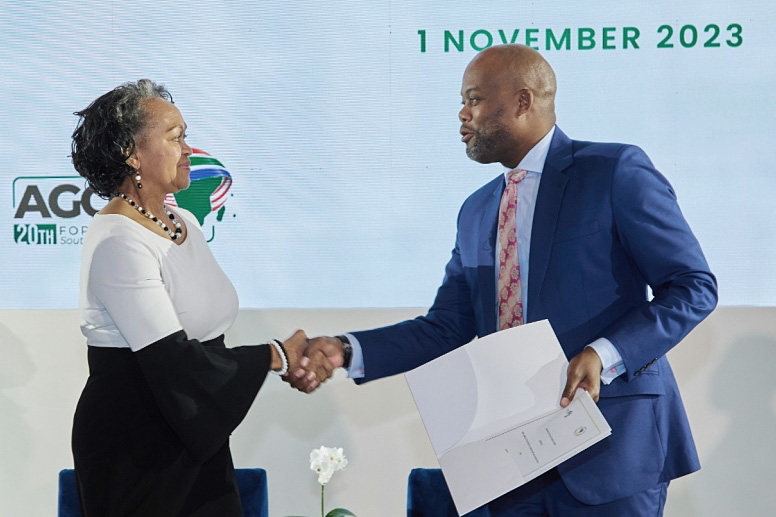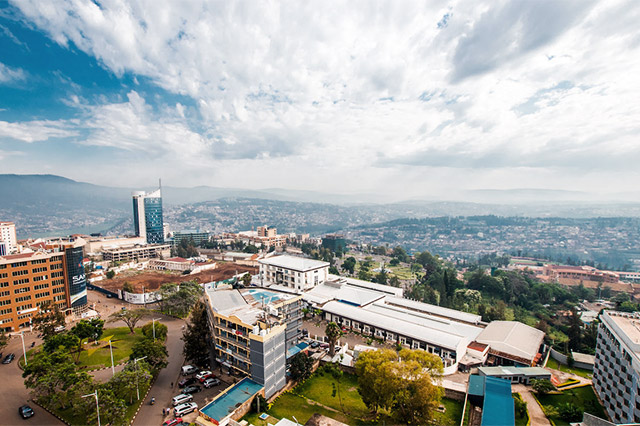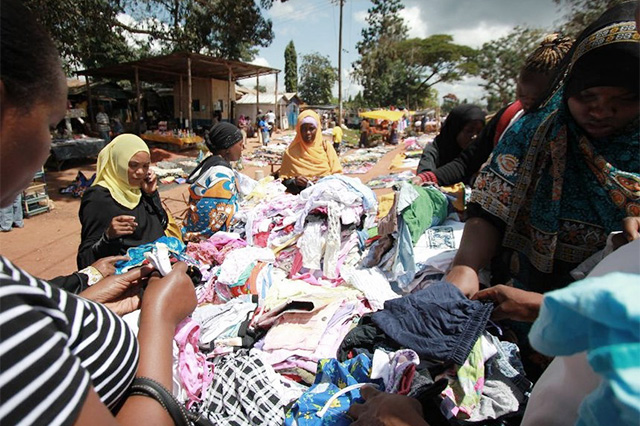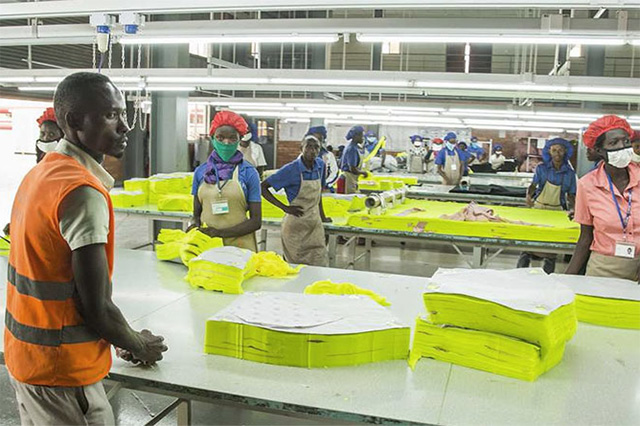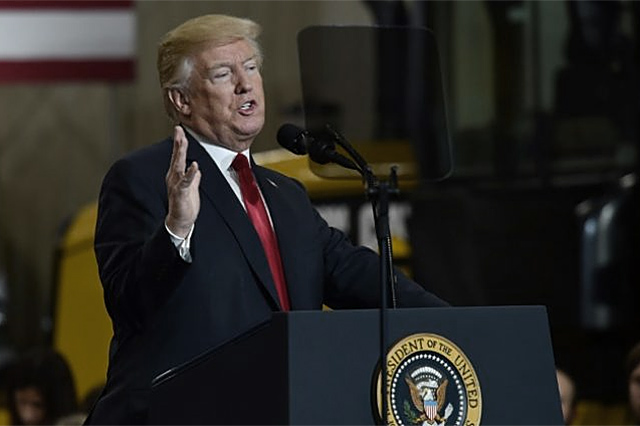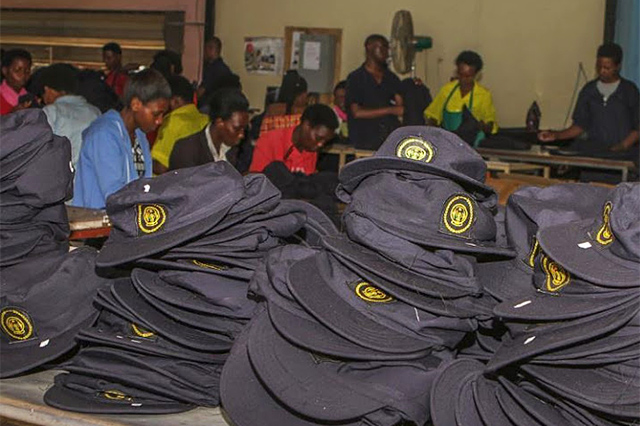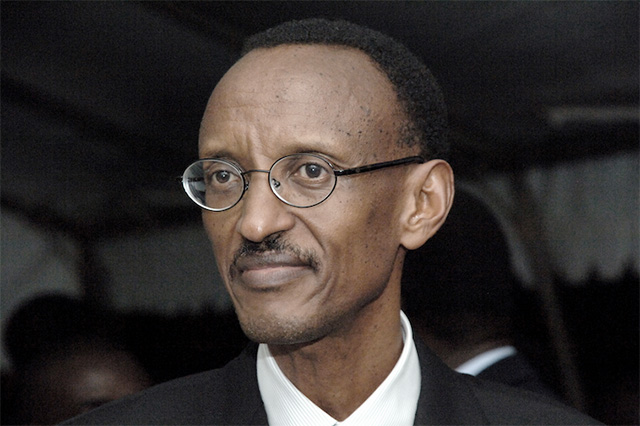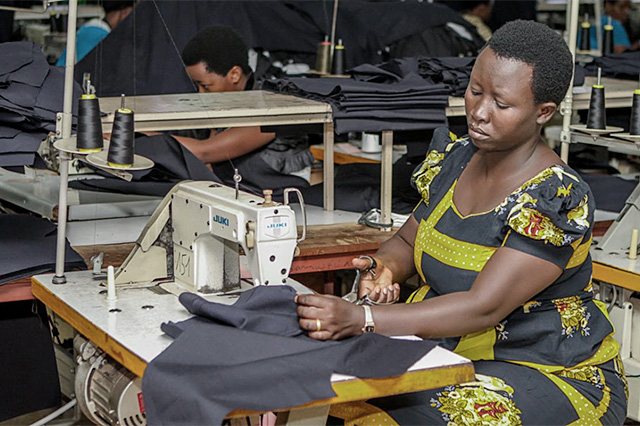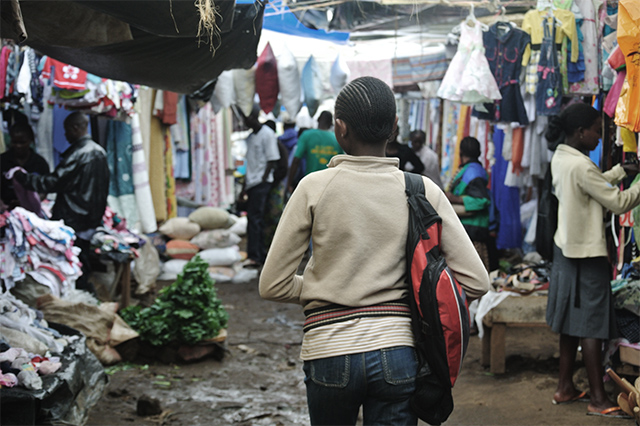World Economic Forum: What’s next for AGOA and US-Africa trade
African economies have changed and trade relations need to evolve since the U.S. first started offering duty-free access to certain countries under the African Growth and Opportunity Act, said U.S. Trade Representative Michael Froman in a Bloomberg interview.
Since AGOA first started in 2000, African economies have become more integrated and they’ve changed in terms of demographics, development and technology, Froman said in Kigali, Rwanda, at the World Economic Forum.
A deadline is looming for Froman’s office to update Congress on sub-Saharan African countries that want to negotiate free-trade agreements with the U.S., Politico reported.
The U.S. is consulting with African officials, business leaders and regional experts on what should happen next.
Sub-Saharan Africa accounted for 1 percent of U.S. trade in 2015, according to Bloomberg.
When AGOA was renewed in 2015 for 10 years, Congress mandated a progress report and re-evaluation of the overall trade and investment relationship between the U.S. and sub-Sahara by June 29, the one-year anniversary of President Barack Obama signing the bill into law.
“It’s time to start looking at what comes next,” Froman told Bloomberg. “Part of what motivates us is that we are hearing from Africans that they want to move towards a more permanent, reciprocal kind of relationship.”
Many in Congress have grown tired of extending one-way trade preferences to Africa without gaining reciprocal access for U.S. goods, Politico reported.
The U.S. started free-trade talks with South Africa and other members of the Southern African Customs Union in 2003, but never reached a deal. The union has five member countries including Botswana, Lesotho, Namibia, South Africa and Swaziland with headquarters in Windhoek.
Froman’s trip comes as the U.S. is preparing to host the annual AGOA trade forum later this year. Rwanda is a member of the East African Community of countries that signed a trade cooperation agreement with the U.S. in 2015. It also has a bilateral investment treaty with the U.S. that went into effect in 2011, Politico reported.
In 2000, the U.S. eliminated import levies on more than 7,000 products from Africa benefiting 39 countries under the African Growth and Opportunity Act, or AGOA. Products range from textiles to cars. It was first adopted in 2000 and renewed in June for 10 years.
“Even though AGOA itself doesn’t expire for 10 years, these kinds of agreements or relationships take awhile to negotiate and implement,” Froman told Bloomberg. “We don’t want countries to be left in the lurch by suddenly losing preferences and not having put in place the necessary ongoing relationships.”
South Africa was at risk of losing its AGOA benefits in 2015 over a reluctance to import U.S. chicken. U.S. chicken imports finally hit South African shelves in March for the first time in 15 years, ending a protracted trade dispute, IndependentOnline reported.
The U.S. is entertaining options including full free-trade agreements and bilateral treaties, according to Bloomberg. Structural changes will take into consideration local manufacturing and regional integration.
“We come into this very much with an open mind,” Froman said. “There may not be a single approach for every country and every region. ”
African economies have become more regionally integrated
The U.S. wants any new trade accords with Africa to be mutually beneficial, according to Bloomberg.
“We don’t want a situation where American firms are disadvantaged, with the U.S. just providing unilateral access to our markets while Africa is providing preferential access to products from other industrialized countries,” Froman said.
East Africa is often credited as a good example of regional integration, where changes such as removing mobile roaming fees for residents travelling in the region have had positive outcomes, IndependentOnline reported.
The region has experienced an explosion of voice and data traffic since roaming charges were dropped, said Arancha Gonzalez Laya, executive director of the International Trade Centre, at a WEF session, “Realising Africa As One Market.”
Removing trade barriers, lifting tariffs, and allowing free movement of people and goods between countries could dramatically improve the economy of the region, according to IOL.



